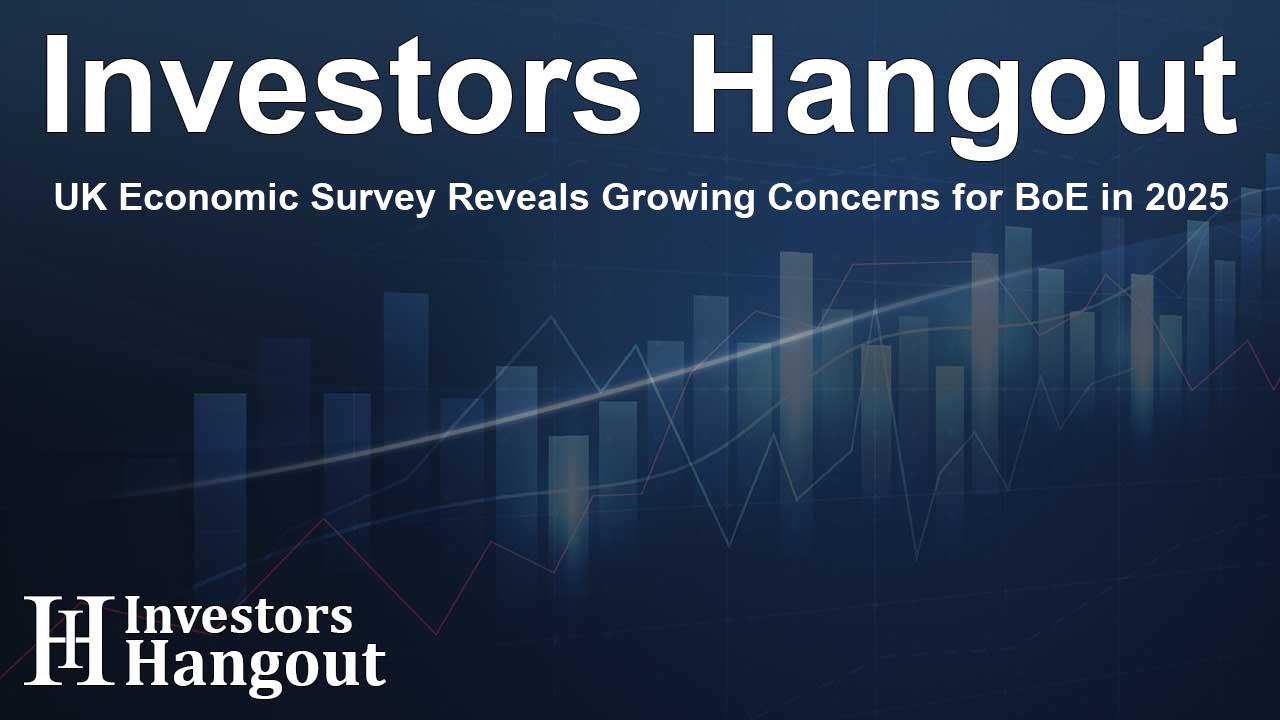UK Economic Survey Reveals Growing Concerns for BoE in 2025

UK Economic Conditions: Stagflation on the Horizon
As 2025 begins, a recent survey reveals that British businesses are experiencing only a slight uptick in growth, with employment and optimism continuing to decline. This situation presents a significant challenges for policymakers at the Bank of England.
Insights from the PMI Survey
The latest preliminary 'flash' reading of the UK S&P Composite Purchasing Managers' Index (PMI) showed a modest increase to 50.9, marking a three-month high, from December’s reading of 50.4. This change indicates a fragile growth trend, adding urgency to the discussions at the BoE.
However, the survey highlighted underlying issues including rising price pressures, which are exacerbating the already cautious business climate. Many firms reported that increased payroll taxes, introduced in the budget, have negatively impacted hiring and overall business sentiment.
The Impact of Fiscal Policies on Business Sentiment
Following finance minister Rachel Reeves’ budget announcement in late October, UK businesses have faced increased financial burdens. The impact of this policy continues to resonate, with firms linking the increased social security contributions to a significant slowdown in hiring.
Moreover, the pace of job losses over the past two months reached levels not seen since the global financial crisis, excluding those experienced during the COVID-19 pandemic. Confidence in the economic future has waned, with pessimism among business leaders reaching its highest point since the tumultuous economic environment of late 2022.
Inflation Pressures and BoE's Dilemma
As Chris Williamson, chief business economist at S&P Global Market Intelligence, remarked, early indicators for 2025 paint a bleak picture for the UK’s economic landscape. The resurgence of inflation pressures suggests that the economy may be edging towards a stagflationary environment, further complicating policy decisions for the Bank of England.
The PMI survey revealed that business expenses and selling prices have surged, reaching their highest levels since mid-2023. These developments will likely be significant factors in the BoE’s upcoming interest rate decision on February 6.
Market Outlook and Predictions
Financial markets are currently forecasting a series of quarter-point rate cuts by the Bank of England throughout 2025, reflecting ongoing inflationary pressures. Observers anticipate that the first cut may occur in February, as the BoE grapples with maintaining economic stability.
Recent official data highlights that the UK economy has stagnated in the previous quarters and is projected to remain flat. Although the services PMI index saw a slight increase to 51.2 in January from December's 51.1, the manufacturing sector continues to decline. It has recorded job cuts at the swiftest pace since February, despite a modest rise in the manufacturing PMI from 47.0 to 48.2.
Conclusion
As the UK navigates through these economic challenges, it remains vital for the Bank of England to address the dual pressures of rising inflation and stagnating growth. The evolving conditions underscore the importance of balanced economic policies that can foster growth while managing inflationary risks.
Frequently Asked Questions
What does the PMI survey indicate about the UK economy?
The PMI survey indicates slight growth but highlights continued decline in employment and rising inflation pressures.
Who voiced concerns about the current economic conditions?
Chris Williamson from S&P Global Market Intelligence expressed concerns about the UK’s economic outlook and stagflation risks.
How are fiscal policies affecting UK businesses?
Increased payroll taxes have negatively impacted hiring and business sentiment, leading to higher job losses.
What do market predictions suggest for the Bank of England in 2025?
Financial markets expect the BoE to implement two to three quarter-point interest rate cuts in 2025 to tackle inflation challenges.
What should we watch for in the upcoming interest rate decision?
The BoE's consideration of inflation pressures and sluggish growth will be crucial in their February interest rate decision.
About The Author
Contact Addison Perry privately here. Or send an email with ATTN: Addison Perry as the subject to contact@investorshangout.com.
About Investors Hangout
Investors Hangout is a leading online stock forum for financial discussion and learning, offering a wide range of free tools and resources. It draws in traders of all levels, who exchange market knowledge, investigate trading tactics, and keep an eye on industry developments in real time. Featuring financial articles, stock message boards, quotes, charts, company profiles, and live news updates. Through cooperative learning and a wealth of informational resources, it helps users from novices creating their first portfolios to experts honing their techniques. Join Investors Hangout today: https://investorshangout.com/
The content of this article is based on factual, publicly available information and does not represent legal, financial, or investment advice. Investors Hangout does not offer financial advice, and the author is not a licensed financial advisor. Consult a qualified advisor before making any financial or investment decisions based on this article. This article should not be considered advice to purchase, sell, or hold any securities or other investments. If any of the material provided here is inaccurate, please contact us for corrections.
